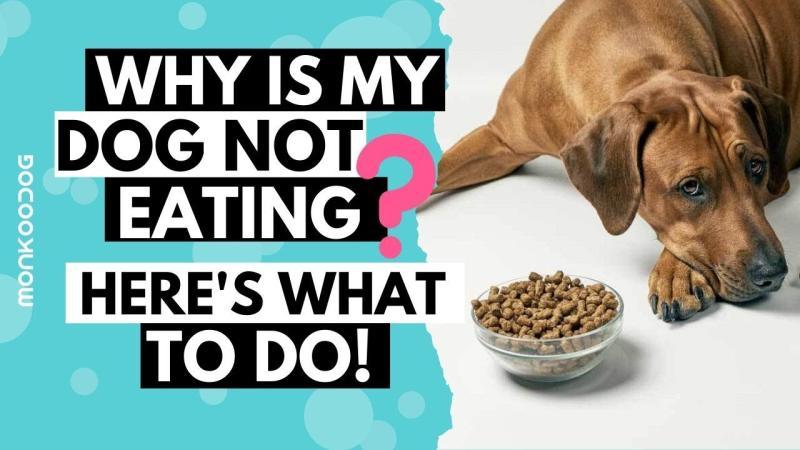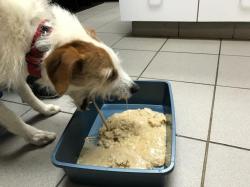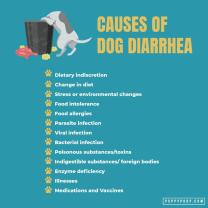Why is my dog not eating but drinking water?
A dog not eating but still drinking water can be a cause for concern, and several factors could contribute to this change in behavior. While some reasons may be minor and temporary, others can be indicative of underlying health issues. Here are some common reasons why a dog might not be eating but is still drinking water:
Upset Stomach or Digestive Issues:
- Dogs may refuse to eat if they have an upset stomach, indigestion, or issues like gastritis. They may still drink water to stay hydrated.
Dental Problems:
- Dental issues, such as gum disease, broken teeth, or oral infections, can make eating uncomfortable for dogs. They may avoid solid food but continue drinking water.
Stress or Anxiety:
- Changes in the environment, routine, or the introduction of new pets or people can cause stress or anxiety in dogs, leading to a loss of appetite.
Illness or Infection:
- Various illnesses, including viral or bacterial infections, can affect a dog's appetite. Conditions like kidney disease, liver disease, or certain cancers can also impact their eating habits.
Medication Side Effects:
- Some medications may have side effects that affect a dog's appetite. If your dog has recently started a new medication, consult with your veterinarian.
Foreign Body Ingestion:
- Ingesting non-food items, like toys or foreign objects, can cause gastrointestinal issues and lead to a lack of interest in food.
Change in Diet:
- If you've recently changed your dog's diet, they may need time to adjust. Dogs can be picky eaters, and sudden changes may lead to a temporary loss of appetite.
Old Age or Dental Issues:
- Older dogs may experience a decline in appetite due to age-related factors. Dental problems, which are more common in senior dogs, can contribute to difficulty eating.
Heat or Environmental Factors:
- Hot weather can sometimes decrease a dog's appetite. Additionally, changes in the environment, such as a move or travel, can temporarily affect their eating habits.
If your dog's lack of appetite persists for more than a day or is accompanied by other concerning symptoms such as lethargy, vomiting, diarrhea, or noticeable discomfort, it's crucial to consult with a veterinarian. A veterinarian can perform a thorough examination, run diagnostic tests, and provide appropriate treatment based on the underlying cause. Early intervention is essential to address potential health issues and ensure the well-being of your dog.
Exploring reasons for a dog's decreased appetite while maintaining water intake
A dog experiencing a decreased appetite while maintaining water intake can be a cause for concern, but not necessarily an emergency. It's important to understand the potential reasons behind this change in behavior and when to seek veterinary attention.
Possible reasons for decreased appetite:
Medical causes:
- Gastrointestinal issues: Indigestion, vomiting, diarrhea, parasites, worms, intestinal blockages, or liver/kidney disease can all lead to a diminished appetite.
- Dental problems: Painful teeth, gum disease, or difficulty chewing can make eating uncomfortable.
- Infections: Bacterial, viral, or fungal infections can cause general malaise and loss of appetite.
- Cancer: Appetite loss can be a symptom of various types of cancer in dogs.
- Metabolic disorders: Diabetes, thyroid issues, or Cushing's syndrome can affect appetite.
- Pain: Pain from arthritis, injuries, or other conditions can suppress appetite.
Non-medical causes:
- Dietary changes: Introducing a new food or a change in food brand can upset a dog's stomach and lead to temporary lack of appetite.
- Stress or anxiety: Changes in routine, travel, new pets, or loud noises can stress a dog out and affect their eating habits.
- Boredom: Lack of mental stimulation or exercise can lead to a loss of interest in food.
- Picky eating: Some dogs are simply picky and may refuse certain types of food.
Additional observations to consider:
- Lethargy or weakness: Along with decreased appetite, watch for other signs like low energy, fatigue, or reluctance to play.
- Vomiting or diarrhea: These symptoms often accompany gastrointestinal issues and require veterinary attention.
- Weight loss: Sudden or rapid weight loss is a significant indicator of an underlying problem.
- Unusual behavior: Any change in your dog's normal behavior, like hiding, excessive thirst, or difficulty breathing, warrants a vet visit.
What to do:
- Monitor your dog: Closely observe your dog's behavior and appetite for a few days. If the lack of appetite persists for more than two days or is accompanied by other worrying symptoms, seek veterinary help.
- Consult your veterinarian: Share your observations and concerns with your vet. They will likely perform a physical examination, ask about your dog's diet and routine, and may recommend further tests like bloodwork or X-rays to diagnose the cause.
- Home remedies: Only attempt home remedies like bland diet or gentle exercise under the guidance of your vet. Avoid self-medicating your dog.
Remember: Early diagnosis and intervention are crucial for treating any underlying medical conditions and ensuring your dog's well-being. Don't hesitate to seek veterinary advice if you're concerned about your dog's decreased appetite.






